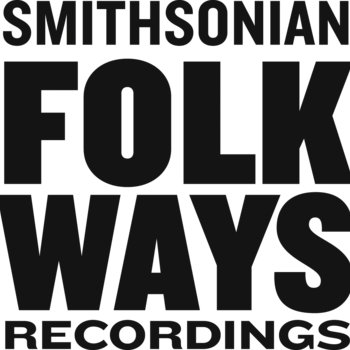
Every year in mid-February, thousands of people make their way toward the wide, sandy clearing at the center of Mlomp, a village in the Casamance region of Senegal. More parades follow, making their way around the large opening as onlookers join the dancing and singing. Each group supports a local wrestler, and the matches that take place are the main event of Mlomp’s harvest festival. For the Jola people of Senegal and Gambia, music is an intrinsic part of traditional wrestling matches, as well as weddings, funerals, harvest festivals, and other celebrations. The celebrations feature the sound of the ekonting (or akonting), a lute-like instrument made out of a gourd covered by animal hide, three nylon strings, and a long papyrus neck.
Jules Diatta is one of Mlomp’s best-known musicians and leads a band called Sijam Bukan. His song “Mamba Sambou,” honoring a local wrestler, is the lead single off Ears of the People: Ekonting Songs from Senegal and Gambia, a new compilation on Smithsonian Folkways which explores ekonting music and its role in Jola culture.
The instrument has been played in Casamance (which stretches between Gambia and southern Senegal) for centuries but was virtually unknown outside the region until the year 2000 when, at a Banjo Collectors’ conference in the U.S., ethnomusicologist Daniel Laemouahuma Jatta demonstrated some striking similarities between the ekonting and early Caribbean and American banjos.



Compact Disc (CD)

Jatta, who wrote the foreword for the compilation, was born in the Gambia and grew up listening to his father play the ekonting in the evenings. He first encountered the American banjo in the 1970s when studying in the United States and began researching the connections between the instruments in the 1990s.
Ethnomusicologists have long posited a connection between West African lutes and the banjo, but researchers like Jatta have shown that the ekonting is the most similar, both in terms of construction and in the “clawhammer” playing style they share. The instrument’s survival and evolution through the ages, despite the cultural genocide of slavery, is a moving testament to the resilience of enslaved Africans in preserving the traditions of their forefathers.
Jatta says the idea of an African genesis of the banjo has captured the imagination of many worldwide. “At one time, the future of the akonting was dwindling, but with the last 22 years of my involvement in the search of the African origins of the New World gourd banjo, its future has started to be bright again.” The first Akonting Center is set to open later this year in Gambia, where Jatta and others will teach “its artistic and cultural values.”
While international interest in the ekonting has grown immensely over the past few years, the instrument has never ceased to be a part of Jola life, as evidenced by the music on Ears of the People.
Recorded in 2019 by ethnomusicologist Scott Linford, who also wrote the liner notes, the songs’ topics are as varied as the playing styles of the nine artists featured on the compilation.

Compact Disc (CD)

Musa Diatta’s “Watu Eriring bee Kaolo” (“The Time Has Come to Rest”) is contemplative and delicate, while Sijam Bukan’s music—whether singing the praises of a wrestler or cheering on a local soccer star—has a lively, rousing energy spurred by the band’s call-and-response vocals and drum; bamboo clapper; and pot-and-spoon polyrhythms. Abdoulaye Diallo is a veteran player who sings about personal love stories and political tales over a nimble ekonting melody on the medley “Ami Kolle / Salymane / Alassane,” and reflects over his lonely childhood on the plaintive “Inje Mama Oomei?”
Playing the ekonting isn’t forbidden for women, but it is unusual. Elisa Diedhiou, who spent years learning how to play and studied with some of the instrument’s masters featured on Ears of the People, says that she is often met with a pleasant surprise when playing in towns and villages around Casamance. For her, preserving the ekonting tradition means keeping it alive by incorporating contemporary pop and global influences, as she does with her trio Esukolaal with Joël Bassene and Dominique “Adiatta” Diatta.
The ekonting was traditionally played without accompaniment, explains Jatta, since “its music is rhythmic enough to dance to.” But, he adds, “Today, young generations are using more instruments to accompany the music to suit their purpose.”
The songs collected on Ears of the People—traditional and modern, solo and ensemble, with lyrics about love, wrestling, football, peace, and migration—testify to the vitality of the ekonting tradition and the adaptability of its masters. If that’s anything to go by, the ekonting’s future has never looked so bright.







